Lower Control Arm Ball Joint Replacement RWD
Removal Procedure
Tools Required
| • | J 23742 Ball Joint Separator |
| • | J 9519-D Ball Joint Remover and Installer Set |
- Raise and suitably support the vehicle with safety stands. Refer to Lifting and Jacking the Vehicle in General Information.
- Remove the tire and wheel assembly. Refer to Tire and Wheel Removal and Installation in Tires and Wheels.
- Place a floor jack under the control arm spring seat. Raise the jack in order to support the control arm.
- Remove the brake caliper. Refer to Front Brake Caliper Replacement in Disc Brakes.
- Remove the cotter pin and the nut.
- Break the ball joint loose from the steering knuckle using the J 23742 .
- Remove the lower control arm out of the opening in the splash shield. Use a putty knife or a similar tool in order to guide the control arm past the splash shield.
- Remove the lower ball joint from the lower control arm using the J 9519-D .
- Inspect the tapered hole in the steering knuckle and remove any dirt. If the tapered hole is out of round, deformed, or damaged, replace the steering knuckle.
Caution: Floor jack must remain under the lower control arm during removal and installation to retain the lower control arm in position. Failure to do so could result in personal injury.
Notice: Support the caliper with a piece of wire to prevent damage to the brake line.
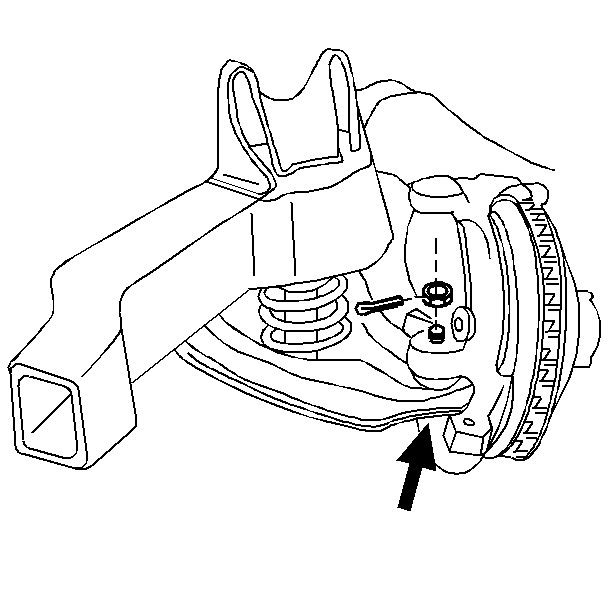
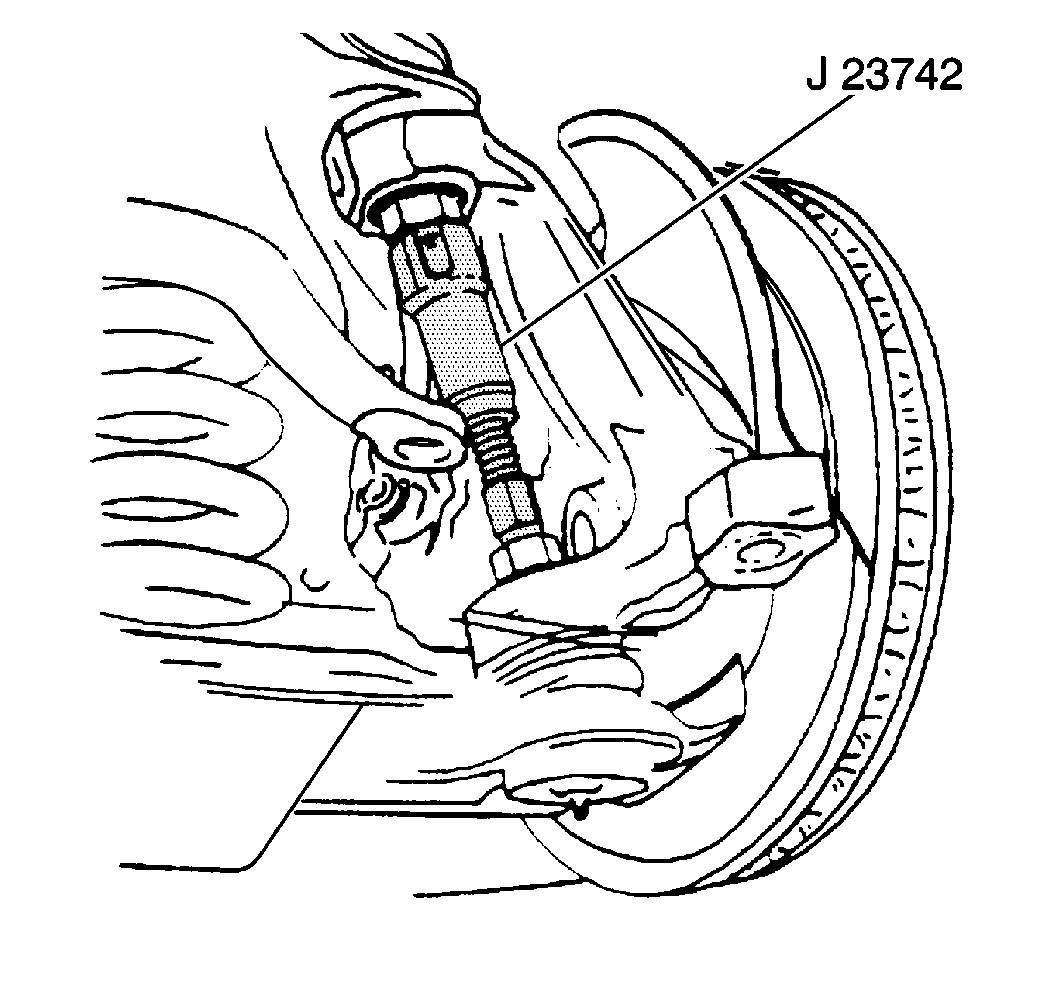
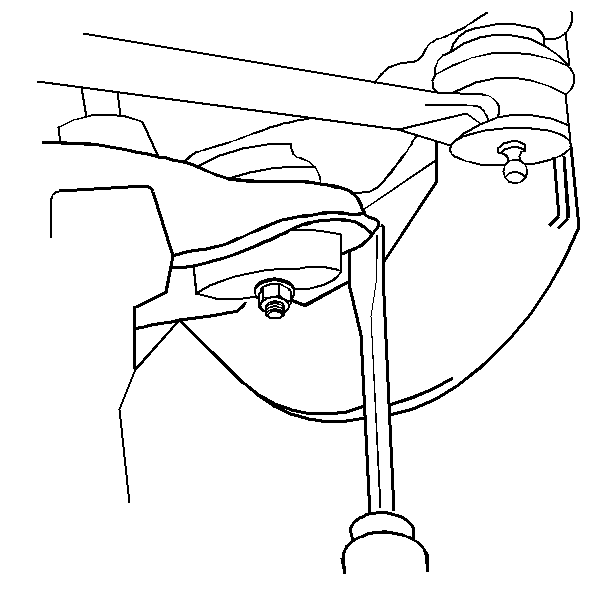
Important: Place a wooden block between the frame and the upper control arm in order to block the knuckle assembly out of the way.

Installation Procedure
Tools Required
J 9519-D Ball Joint Remover and Installer Set
- Install a new ball joint into the lower control arm.
- Install the ball joint stud into the steering knuckle.
- Install the lower ball stud nut.
- Install a new cotter pin to the stud.
- Lubricate the lower ball joint.
- Install the brake caliper. Refer to Front Brake Caliper Replacement in Disc Brakes.
- Install the tire and wheel assembly. Refer to Tire and Wheel Removal and Installation in Tires and Wheels.
- Lower the vehicle.
- Check the front wheel alignment. Refer to Wheel Alignment Specifications in Wheel Alignment.
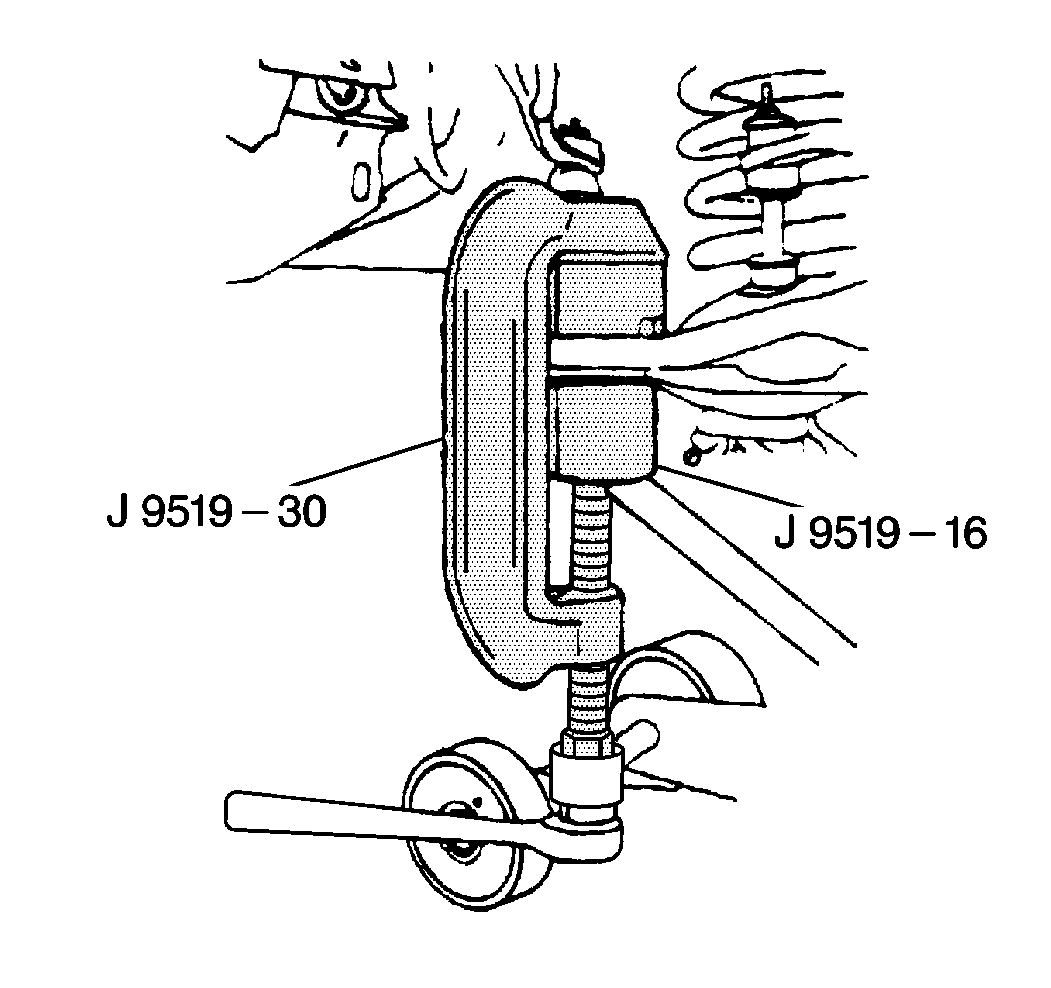
| 1.1. | Press in the ball joint using the J 9519-D . The ball joint will bottom on the control arm. |
| 1.2. | Locate the grease fitting facing inboard. |

Notice: Use the correct fastener in the correct location. Replacement fasteners must be the correct part number for that application. Fasteners requiring replacement or fasteners requiring the use of thread locking compound or sealant are identified in the service procedure. Do not use paints, lubricants, or corrosion inhibitors on fasteners or fastener joint surfaces unless specified. These coatings affect fastener torque and joint clamping force and may damage the fastener. Use the correct tightening sequence and specifications when installing fasteners in order to avoid damage to parts and systems.
Tighten
Tighten the lower ball stud nut to 108 N·m (79 lb ft).
Tighten in order to align the slot in the stud nut with the hole in the stud.
Lower Control Arm Ball Joint Replacement 4WD
Removal Procedure
- Raise and support the vehicle with safety stands. Refer to Lifting and Jacking the Vehicle in General Information.
- Remove the tire and wheel. Refer to Tire and Wheel Removal and Installation in Tires and Wheels.
- Disconnect the cotter pin from the ball joint stud.
- Using a pry bar, placed on top of the lower control arm and on the bottom of the frame, pry downward.
- With the aid of a helper, carefully hammer on the steering knuckle in the area of the lower ball joint stud in order to release the stud from the lower control arm.
- Remove the ball joint to steering knuckle nut.
- Remove the ball joint from the steering knuckle. Refer to Front Wheel Hub, Bearing, and Seal Replacement .
- Remove the rivets from the lower ball joint.
- Use a 3.175 mm (1/8 in) drill to cut a 6.35 mm (1/4 in) deep hole in the center of each rivet.
- Drill the rivet heads away using a 12.7 mm (1/2 in) drill.
- Remove the rivets using a pin punch.
- Remove the lower ball joint.
| 7.1. | Tip the knuckle out and toward the rear of the vehicle. |
| 7.2. | Suspend the steering knuckle from the upper control arm in order to prevent straining the brake line. |
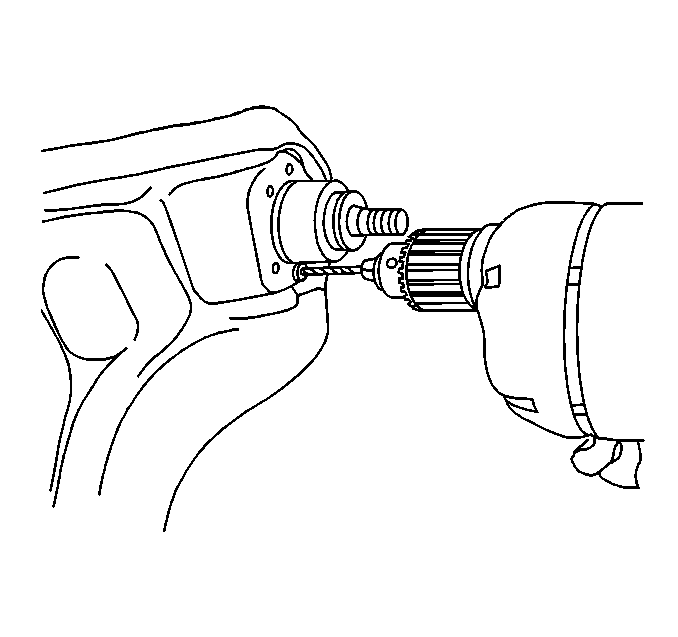
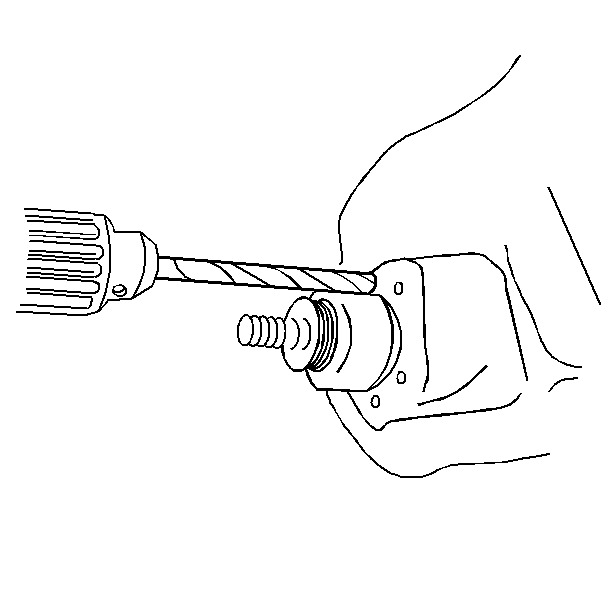
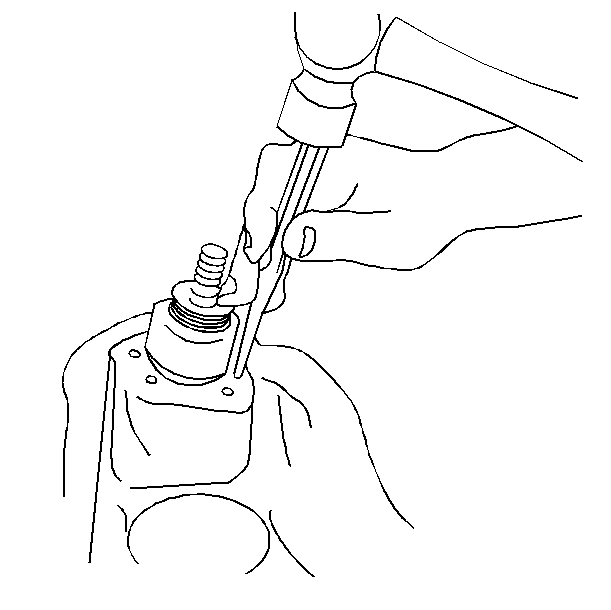
Installation Procedure
- Install the lower ball joint to the control arm.
- Install the lower ball joint retaining bolts and the nuts.
- Install the lower ball joint to the steering knuckle.
- Install the lower ball joint to steering knuckle nut.
- Install new cotter pin. Bend the pin ends against the nut.
- Install the tire and the wheel. Refer to Tire and Wheel Removal and Installation in Tires and Wheels.
- Lower the vehicle.
- Check the front wheel alignment. Refer to Wheel Alignment Specifications in Wheel Alignment.
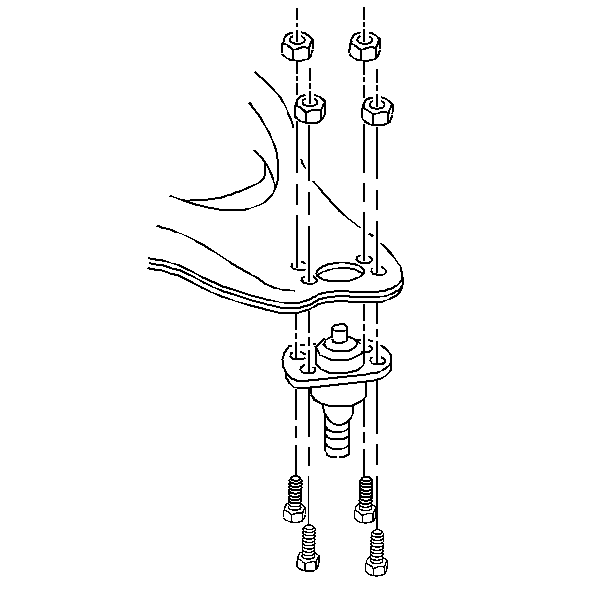
Notice: Use the correct fastener in the correct location. Replacement fasteners must be the correct part number for that application. Fasteners requiring replacement or fasteners requiring the use of thread locking compound or sealant are identified in the service procedure. Do not use paints, lubricants, or corrosion inhibitors on fasteners or fastener joint surfaces unless specified. These coatings affect fastener torque and joint clamping force and may damage the fastener. Use the correct tightening sequence and specifications when installing fasteners in order to avoid damage to parts and systems.
Tighten
Tighten the lower ball joint retaining nuts to 23 N·m (17 lb ft).
Tighten
| • | Tighten the lower ball joint stud nut to 108 N·m (79 lb ft). |
| • | Tighten the nut in order to align the cotter pin. Do not tighten the nut more than 1/6 turn. |
